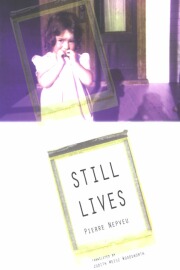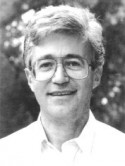
About the book
- Shortlisted for the John Glassco Award From Four-Time GG Award Winner
About the author

Pierre Nepveu is the author of numerous volumes of poetry, essays and novels, including Intérieurs du Nouveau Monde, winner of the 1998 Governor General's Award for non-fiction, Romans-fleuves, winner of the 1997 Governor General's Award for Poetry, L'Écologie du réel, winner of the Prix Victor-Barbeau de l'Académie des lettres du Québec, and the anthology La Poésie québecoies des origines à nos jours, edited with Laurent Mailhot and winner of the Prix France-Canada. Nepveu has also twice been shortlisted for the Governor General's Award for his novel, L'Hiver de Mira Cristophe and for his collection of essays, Les mots à l'écoute.
About the translator

Judith Weisz Woodsworth has been an active member of the translation community for twenty years. She has written about translation and translation history and worked as a teacher and scholar. She is the Vice-President, Academic, at Mount Saint Vincent University in Halifax. Her Still Lives translation was shortlisted for the John Glassco Translation Prize.
Excerpt
He began to roam the streets in his spare time. He gathered images of ordinary life from here and there. He captured human faces, smiles, sad expressions and children at play. He began to experience the faintest of pleasures, which he immediately disparaged by reminding himself how ordinary his photos were. He imagined the millions of images which others before him had produced and which they were still producing at that very moment, the world over: thousands of shots of the Eiffel Tower, or Niagara Falls, or smiling families, or children, all looking more or less the same, all frozen in the same idiotic mirror held up throughout the days and years. What a waste of time. But he continued, because he intensely needed to preserve something of his slow descent into darkness. Yet he knew full well that once he reached bottom he would no longer have the eyes to see. Once he achieved complete absence he would no longer be in a position to cast a backward glance at the fine spectacle of his decline. In any case, he thought, these images would remain foreign to him. Their main advantage was that they revealed nothing about himself.
One day, on one of those rare days when he found himself inclined to postpone the fatal deadline, when the faint glimmer of pleasure outweighed all the rest, he allowed his hobby to provide him with a means of escape. He was guided to the offices of a newspaper which had run an ad (one of the only things he still read, apart from a few magazines, and the odd page of a book opened at random, in the middle). There, almost miraculously, he landed a job as a photographer.
He began at the low end of the totem pole, spending most of his time capturing the same banal scenes over and over again: the door of a factory from which workers had just been laid off, a student demonstration, the front of a bank after a hold-up, one street where they were burying electrical cables and another one where trucks drove back and forth, day in and day out, keeping local residents awake at night. The trucks were piled high with huge stones that were being dumped in the river to make an island, they said.
He always covered short-lived stories, until he was assigned to the World's Fair that was being assembled in the middle of the river. Through no fault of this own, this severely retarded his irreversible decline and profound torpor. He had to live, at least through one chilly spring and a summer swollen with storms, while waiting for the last snows to fall, while awaiting the final, majestic white storm that marks the end of human existence.
And so, images unfurled that year. The pavilions of Expo were erected almost overnight. Events occurred at such a rhythm that he seemed never to have enough eyes or cameras to see everything, to pinpoint everything, to record everything. He worked doggedly, like a beast of burden, throughout that unforgettable spring. And, at the same time, he blundered into a romance—incredible for someone who had no heart or who had kept it to himself, carefully locked up at that, because you need a healthy heart, all your own, in order to escape fully, in order to grow smaller and disappear without a trace.
He had never had a woman in his life before, except in his dreams. That spring, against his better judgment, in breach of the pitiful contract he seemed to have signed with his unlucky star (but then wasn't he destined to be a cheater, a traitor?), he let a woman come into his life. She came from elsewhere, from afar. She came into what was left of his life, and he never quite got over it. He was left with burning scars and, later, a chilly memory.
Reviews
“The novel reads beautifully, with an eloquence that allows readers to exit it both lost and found. It is the tale of one lonely man among lonely millions who admits he 'was not destined for great things. He was not…” >>
— The Globe & Mail
“Still Lives is both brutal and tender, and Nepveu's insights and painstaking detail give it a strange, lyrical resonance that belies the monotony of Jerome's life. The narrative Nepveu's lyrical passages relates is achingly down-to-earth.” >>
— The Montreal Gazette
“Poet and novelist Pierre Nepveu stands out for the quality of his writing—carefully chosen words, sentences that flow one into the other.” >>
— Le Soleil
“It has taken six long years for Pierre Nepveu to produce this second novel, but it has been well worth waiting for. Nepveu's writing is reminiscent of the best of André Major, Jacques Poulin, Gabrielle Roy and André Langevin. At…” >>
— Voir
“Nepveu treats the themes of fatherhood and solitude with the kind of profound dignity that so often eludes male novelists.” >>
— La Presse








 Back to top
Back to top